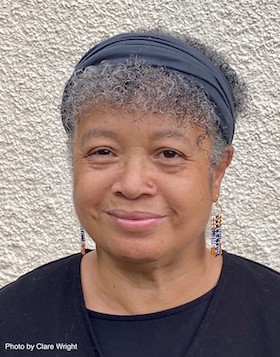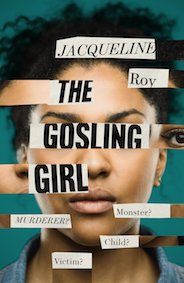 The Gosling Girl is the story of Michelle Cameron, who is of British and Jamaican heritage. At the age of ten, she kills a four year old white child and is named by the judge at her trial. She is given a new name and a new identity to protect her from the threat of exposure by the media, which has hounded her. As an adult, she tries to make a new life for herself.
The Gosling Girl is the story of Michelle Cameron, who is of British and Jamaican heritage. At the age of ten, she kills a four year old white child and is named by the judge at her trial. She is given a new name and a new identity to protect her from the threat of exposure by the media, which has hounded her. As an adult, she tries to make a new life for herself.
The novel opens with Michelle Cameron’s release from prison when she is in her twenties. Most novels in the crime fiction genre close with the capture and (implied) imprisonment of a perpetrator. Novels where the reader knows from the outset who has committed the crime have sometimes been described as whydunnits rather than whodunnits and The Gosling Girl fits this category.
As a black writer, I felt I couldn’t approach the crime fiction genre in the usual way: one of the main conventions of crime fiction is that the detective is fundamentally good, while the perpetrator is fundamentally bad. The things we are told about criminals in such fiction tend to reinforce the idea of irredeemable badness. Given that the police have been described, historically, as institutionally racist, I didn’t feel I could just reproduce the good cop/bad criminal scenario in my writing. I wanted the black detective in the novel not to enjoy the job and to have doubts regarding her role in the police service. Again, this is relatively rare; fictional detectives tend to love their work and to be certain of their own moral superiority with regard to the offenders they encounter. Equally, I wanted the reader to question the idea that Michelle Cameron was simply bad. Could her circumstances have contributed to her crime? Who evades justice and who is made accountable? What determines this?
Michelle Cameron’s psychological reasons for committing her crime are explored throughout the novel and they are fundamental to the story, they are not just presented at the end of the book to wrap up the case. However, it also seemed important not to excuse the murder of a child, or to remove responsibility from Michelle Cameron. In order to try to avoid this, I included the victim’s family and the devastation that the murder of their child has caused them, even though they are by no means at the centre of the novel.
I called the book The Gosling Girl because this is how the media describes Michelle Cameron. Gosling is the surname of the child she murdered. In this way, Michelle Cameron is deprived of her own identity because she is forever associated with the child she killed. It means that she is doubly punished; she loses her liberty as a result of her crime, but she also loses her name; our names are a key aspect of our identity - they tell us who we are in the world and position us as members of a family. The use of the term The Gosling Girl to describe Michelle Cameron also takes away the comfort of their name from the victim’s family; whenever the Gosling girl is mentioned, they have to think of their dead child and know that the perpetrator is inextricably tied up with their identity too. Identity and how identities are formed (and also taken away) are significant themes of the novel, and questions of race, class and sexual orientation are a big part of this exploration in the book.
I researched two real-life cases in order to write this novel: the case of Jon Venables and Robert Thompson in the 1990s and the case of Mary Bell in the 1960s. In each of these cases, children who killed at the age of ten were named by judges and tried in adult courts, and even today they remain the subject of inflammatory media attention. Consequently they have had to change their names and remain in hiding. I wanted to invite readers to consider questions such as whether a life sentence should literally mean life; what it means to have an identity removed, especially when it happens to a child; how guilt and trauma reveal themselves and what it means to be powerless. I also wanted to explore how we deal with loss and a sense of alienation.
Crime fiction is often very bleak and I did not intend The Gosling Girl to be a bleak novel, despite the difficult subject matter. I wanted the reader to come away from it with a sense of hope. Michelle Cameron’s struggle is not just grim, it also has moments of positivity and joy and this was another way in which the novel does not wholly fit the crime fiction genre. Crime is at the centre of the book but it is not the whole story.

The Gosling Girl
Simon & Schuster
Hbk £14.99
January 20, 2022